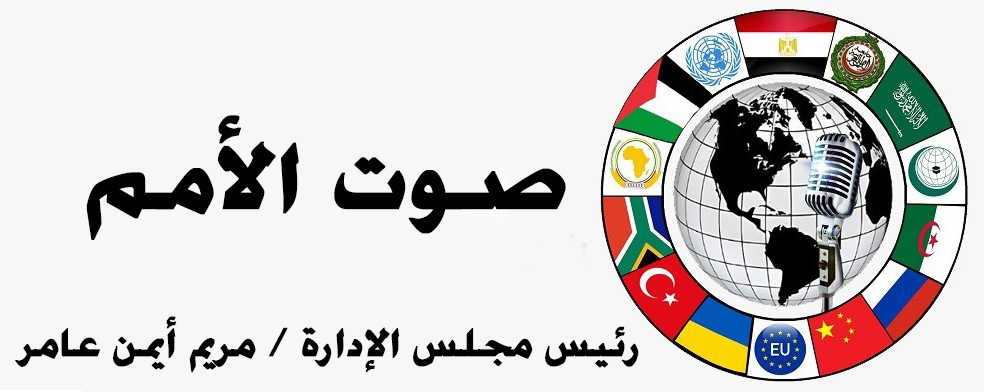
أيمن عامر – عبدالرحمن ابودوح
تتجه الأنظار إلى مدينة تيانجين الصينية، التي تستضيف يومي 31 أغسطس و1 سبتمبر قمة منظمة شنغهاي للتعاون (SCO) لعام 2025. وتأتي القمة في وقت تؤكد فيه المنظمة على أهمية “روح شنغهاي” التي قامت عليها، والتي تُعرَّف بالثقة المتبادلة، والمنفعة المتبادلة، والمساواة، والتشاور، واحترام التنوع الحضاري، والسعي لتحقيق التنمية المشتركة.
رؤية مشتركة لمستقبل واعد
من المتوقع أن يقر قادة الدول الأعضاء استراتيجية جديدة لتنمية المنظمة على مدى السنوات العشر القادمة، بالإضافة إلى تعزيز التعاون الأمني والاقتصادي والثقافي. وتُعد هذه الخطوات امتدادًا لرؤية الرئيس الصيني شي جين بينغ التي طرحها في قمة أستانا عام 2024، والتي تدعو لبناء “بيت مشترك” يتميز بالتضامن والثقة المتبادلة، والسلام والرخاء، وحسن الجوار والصداقة، والعدالة والإنصاف.
الصين ودورها المحوري
أثبتت الصين، بفضل حجمها الاقتصادي والجغرافي، ريادتها في دعم المنظمة، حيث قدمت التمويل والموارد اللازمة لدفعها إلى الأمام. ومع ذلك، لم تسعَ بكين أبدًا لفرض سيطرتها، بل عملت على تجسيد “روح شنغهاي” من خلال تعزيز قيم المنظمة ومبادئها.
كما ساهم احترام الصين على الساحة الدولية في توسيع علاقاتها مع مختلف الدول، على غرار ما يحدث في مبادرة الحزام والطريق (BRI)، التي مكّنت عددًا متزايدًا من البلدان من الاستفادة من التجارة العالمية والتنمية الاقتصادية.
منارة أمنية واقتصادية
تأسست المنظمة عام 2001 على يد ست دول، هي: الصين، وروسيا، وكازاخستان، وقيرغيزستان، وطاجيكستان، وأوزبكستان، بهدف تعزيز أمن الحدود وتبادل المعلومات المتعلقة بالأمن. وانضمت إليها لاحقًا كل من الهند وباكستان وإيران وبيلاروسيا، مما جعلها منارة في عالم مضطرب، حيث تعمل على حماية أعضائها من التحديات الأمنية مثل الإرهاب وتجارة المخدرات غير المشروعة.
وتعزز التدريبات العسكرية المشتركة وتبادل المعلومات الأمنية من قدرة الدول الأعضاء على مواجهة التحديات. كما تسهم الشراكات الاقتصادية القوية وتأمين مصادر الطاقة في تعزيز قوة المنظمة.
Editor’s note: At the Shanghai Cooperation Organization’s Astana Summit in July 2024, Chinese President Xi Jinping called for building a common home featuring solidarity and mutual trust, peace and tranquility, prosperity and development, good-neighborliness and friendship, as well as fairness and justice. To highlight this vision, CGTN has launched a five-part series Common Home, Moving Forward. The first article in this series focuses on the political foundation of the organization.
Anthony Moretti, a special commentator for CGTN, is an associate professor at the Department of Communication and Organizational Leadership at Robert Morris University in the U.S. The opinions expressed in this article are solely those of the author and do not necessarily reflect the views of Robert Morris University and CGTN.
The 2025 Shanghai Cooperation Organization (SCO) Summit will be held in Beijing’s neighboring city Tianjin on August 31 and September 1. In the two-plus decades since the SCO’s inception, one thing remains as critical as it was at the start: the Shanghai Spirit, defined by mutual trust, mutual benefit, equality, consultation, respect for diversity of civilizations and pursuit of common development.
A recent report suggests that an overwhelming number of people view the SCO as a positive player on the global stage, a lighthouse in a turbulent sea. Building on that idea, Chinese President Xi Jinping said at a recent group meeting with the SCO foreign ministers and heads of permanent bodies, “Over the past 24 years since its founding, the SCO has always upheld the Shanghai Spirit, grown into a mature and robust organization and demonstrated strong vitality.”
The summit is expected to approve a development strategy for the SCO for the next 10 years and the leaders are expected to endorse ways to strengthen security, economic and cultural cooperation
China has led the way because of its geographic and economic size. It can provide more funding and bring more resources than other SCO nations. However, China has never sought to own the organization by dictating what it ought to do. Rather, China demonstrates the Shanghai Spirit by propelling the SCO forward and guaranteeing it can retain its values.
Furthermore, the respect China enjoys on the international stage helps it to both expand its relationships with other countries as well as seek new ones. The Belt and Road Initiative (BRI) is an example, helping a rising number of countries benefit from global trade, economic development, advances in transportation, technology transfers and more. When one considers the political, religious, cultural and other differences among the countries participating in the BRI, the diversity adds to the BRI’s credibility: All nations are partners.
It is the same for the SCO. Consider what the world looked like when the SCO was formed. Six nations – China, Russia, Kazakhstan, Kyrgyzstan, Tajikistan and Uzbekistan – came together largely to strengthen regional borders and share information related to security. Subsequently, India, Pakistan, Iran and Belarus also joined the organization.
The SCO remains a beacon in a stormy world, with its members protecting one another. The priorities that were in play in 2001 are perhaps even more vital in 2025 and none of today’s calamities are due to the SCO members.
The domestic security of the partnering nations has been enhanced because of the respect they have for one another. Joint military exercises demonstrate this respect, as does the exchange of information about potential terrorism and the distribution of illegal drugs.
Access to energy, critical because it can be exploited for hostile purposes, adds to the strength of all SCO nations. So does fostering stronger economic partnerships. And as always, borders and sovereignty are respected. These and other principles affirm China’s position of mutual respect, peaceful co-existence and win-win cooperation.
What might the next 25 years hold? While any prediction must be tempered with the understanding that reckless actions taken by political leaders not associated with the SCO and unforeseen natural disasters could make plans go haywire, there is reason to be enthusiastic about the SCO’s future and the Shanghai Spirit.
China remains consistent in its international message of mutual understanding, peaceful coexistence and win-win cooperation. As such, countries know they can count on Beijing to talk the talk and also walk the walk. China approaches dealmaking without the bluster and the bullying displayed by certain governments. Instead, it relies on securing fairness in all conversations.






